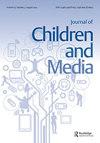Online digital platform use by adolescents in Kenya
IF 2.1
3区 心理学
Q2 COMMUNICATION
引用次数: 1
Abstract
ABSTRACT This study explored internet use by adolescents, aged 12–14 years, who reported negative online experiences in Kenya. A qualitative case study method was employed, using in-depth interviews and thematic analysis. The study’s findings show that young people frequently used online platforms at night for entertainment (online gaming, betting, chatting, and streaming content) and educational purposes (searching for educational content). The challenges they encountered included fraud, stalking, pop-ups, and accidental access to adult content. They devised strategies for staying safe that included going offline, ignoring messages, deleting accounts, and hiding online (e.g. fake photos or IDs). Study findings indicate that female users more readily reported issues they encountered online than males. The study suggests the need for strategic partnerships between relevant international and local stakeholders to create awareness and empowerment programs (training, advocacy, and resourcing) to address online risks through the media, formal school programs, and parent–teacher associations. IMPACT SUMMARY a. Prior State of Knowledge: While adolescents’ digital platform use has been studied extensively in other countries, little is known about the online behaviors of African adolescents in general and Kenyan adolescents in particular. b. Novel Contributions: This study responds to the public dialogues on the security and safety of adolescents using internet resources in Kenya and elsewhere by providing empirical data on the internet safety of adolescents in Kenyan schools. c. Practical Implications: Stakeholders are encouraged to form strategic international and local partnerships to create awareness, implement empowering training programs, as well as advocate and provide resources through the media, parent–teacher associations, and formal school programs that address adolescents’ online risks.肯尼亚青少年使用在线数字平台的情况
摘要本研究调查了肯尼亚12-14岁青少年的网络使用情况,这些青少年报告了负面的网络体验。采用定性案例研究方法,采用深入访谈和专题分析。研究结果显示,年轻人经常在晚上使用在线平台进行娱乐(在线游戏、博彩、聊天和流媒体内容)和教育目的(搜索教育内容)。他们遇到的挑战包括欺诈、跟踪、弹出窗口和意外访问成人内容。他们设计了保持安全的策略,包括离线、忽略消息、删除账户和隐藏在线(例如假照片或身份证)。研究结果表明,女性用户比男性更容易报告他们在网上遇到的问题。该研究表明,相关国际和当地利益相关者之间需要建立战略伙伴关系,以创建意识和赋权计划(培训、宣传和资源),通过媒体、正式学校计划和家长-教师协会来应对网络风险。影响总结a.先前的知识状况:虽然其他国家对青少年使用数字平台的情况进行了广泛研究,但对非洲青少年尤其是肯尼亚青少年的网络行为知之甚少。b.新颖贡献:本研究通过提供肯尼亚学校青少年互联网安全的实证数据,回应了肯尼亚和其他地方关于青少年使用互联网资源的安全保障的公众对话。c.实际影响:鼓励利益相关者建立战略性的国际和地方伙伴关系,以提高认识,实施赋权培训计划,并通过媒体、家长-教师协会和解决青少年网络风险的正式学校计划倡导和提供资源。
本文章由计算机程序翻译,如有差异,请以英文原文为准。
求助全文
约1分钟内获得全文
求助全文

 求助内容:
求助内容: 应助结果提醒方式:
应助结果提醒方式:


